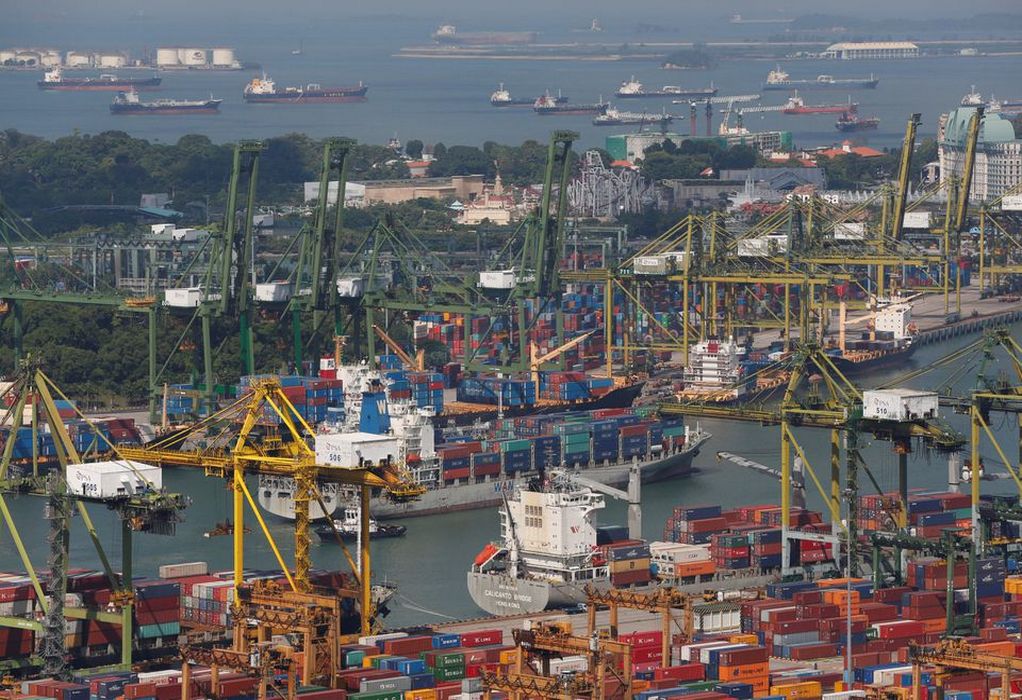The Global Centre for Maritime Decarbonisation (GCMD) has awarded its ammonia bunkering safety study in Singapore to a DNV-led consortium aimed at accelerating the shipping industry’s decarbonisation efforts, the Centre said in a statement on Wednesday.
“A precursor to the demonstration of ammonia bunkering in Singapore, the intent of this study is to define a robust set of safety guidelines and operational envelopes that will establish the basis of a regulatory sandbox for trials at two local bunkering sites,” the Centre said.
“We have chosen to commission this study in Singapore; with Singapore being a population dense island nation and a major bunkering hub, the stringent guidelines developed in this study will likely be extensible to ports elsewhere,” said GCMD Chief Executive Lynn Loo.
The shipping industry is examining a range of technologies as it looks to meet an International Maritime Organization target of a 50% reduction in overall greenhouse gas emissions from 2008 levels by 2050.
The Global Centre for Maritime Decarbonisation (GCMD) has awarded its ammonia bunkering safety study in Singapore to a DNV-led consortium aimed at accelerating the shipping industry’s decarbonisation efforts, the Centre said in a statement on Wednesday.
“A precursor to the demonstration of ammonia bunkering in Singapore, the intent of this study is to define a robust set of safety guidelines and operational envelopes that will establish the basis of a regulatory sandbox for trials at two local bunkering sites,” the Centre said.
“We have chosen to commission this study in Singapore; with Singapore being a population dense island nation and a major bunkering hub, the stringent guidelines developed in this study will likely be extensible to ports elsewhere,” said GCMD Chief Executive Lynn Loo.
The shipping industry is examining a range of technologies as it looks to meet an International Maritime Organization target of a 50% reduction in overall greenhouse gas emissions from 2008 levels by 2050.
In addition to ammonia, other low or zero-carbon marine fuels that may help the industry meet its decarbonisation targets include liquefied natural gas, methanol, biofuels and hydrogen.
“GCMD has chosen to look at ammonia bunkering as its first project because ammonia is among the most energy-efficient green fuels to be produced,” said Loo.
This study will build on guidelines that have been developed for safe handling of ammonia as a commodity by defining and then integrating or overlaying the guidelines required for safe handling ammonia as a bunker fuel, the GCMD statement said.
The Centre was formed in August 2021 with funding from Singapore’s Maritime and Port Authority and six founding industry partners with the aim of helping the maritime industry eliminate greenhouse gas emissions.
DNV will partner with Singapore’s Surbana Jurong and the Singapore Maritime Academy (SMA) for the study which commences in February 2022 and is expected to take 10 to 12 months to complete.
Source: Reuters
Tags: Amoonia, Bunkering, Decarbonisation, DNV



Recent Posts
South Africa advances plans to decarbonize shipping sector
New IMO Course Builds Global Capacity for Safe Use of Renewable Fuels in Shipping
IISc Develops Hydrogen Production Tech from Agri-Waste with Over 99% Purity
MPCC Orders Four Energy-Efficient Container Vessels in USD 228 Million Fleet Expansion
Yang Ming Orders LNG Dual-Fuel Vessels from Hanwha Ocean Advancing its Fleet Optimization Plan
Shipping Industry Seeks Clarity Ahead of IMO’s Net-Zero Framework Adoption
Report Highlights Pathway for Electrifying Nigeria’s Container Trade Sector
South Korean Company YPP Plans to Invest up to $3.1 Billion in Green Hydrogen Production in Kazakhstan